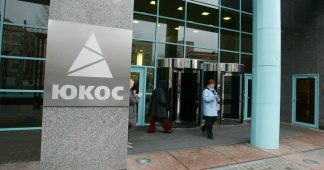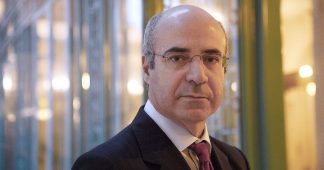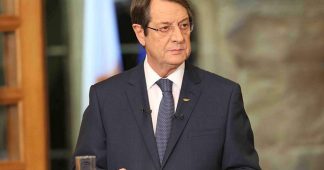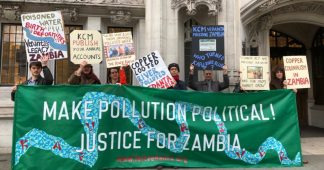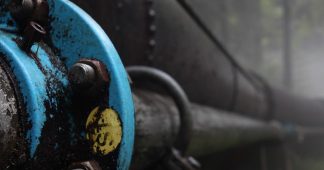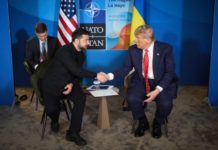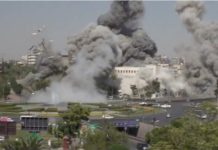6 Feb, 202
A long-running legal battle over the legacy of defunct energy giant Yukos, has resumed in the Netherlands, this week. RT spoke to Russia’s Deputy Justice Minister about the landmark case and why it also matters for other nations.
Speaking exclusively to RT, Mikhail Galperin outlined how the Russian defense team has several arguments, but the one with particular precedent-setting ramifications concerns its contention that international law should not be abused to protect criminals.
On Friday, the Supreme Court in The Hague started hearings over a complaint brought against Russia in 2005 by former shareholders of the firm, once one of Europe’s largest resource companies. It’s the third round of this saga in the jurisdiction of the Netherlands alone. In 2014, a Dutch ruling awarded $50 billion in compensation to the shareholders, but in 2016 that judgement was overturned by a higher-level court.
The UN Convention against Corruption “very clearly states that structures that receive illegally acquired assets … cannot be considered as bona fide third parties,” Galperin argued. “Which means they cannot say: ‘Oh, I am just a third party, I am protected. I don’t care how these illegal assets were acquired.’ They should care.”
Yukos came into existence during the turbulent Russian privatizations of the 1990s and at its peak was one of the world’s biggest crude producers. Controversial oligarch Mikhail Khodorkovsky managed to acquire the oil assets for a meager $170 million, which was less than their estimated value, by an order of magnitude. Its true worth was estimated to be around $5 billion, leading one economic adviser to describe the sale as “the swindle of the century.”
Some years later, a new Russian government cracked down on the company for large-scale tax evasion, ordering it to pay its due. Khodorkovsky claimed that the process was politically motivated and his position was widely accepted in Western media, which had strongly supported the economic policies of the Boris Yeltsin years, despite the pain they unleashed on ordinary Russians.
Eventually the firm was broken up and absorbed as national property. Former Yukos shareholders – three offshore firms that Moscow believes to be letterbox companies owned by a bunch of Russian oligarchs – claim they lost their investment due to a state act of expropriation. Moscow argues that there can be no justification to protect the poisoned fruit of fraud and tax evasion.
That’s essential for any civilized state that you cannot benefit from such kinds of things. You cannot have legal protection for your illegal behavior.
“First they [Yukos oligarchs] acquired the company for nothing using bribery,” Galperin continued. “Then they extracted billions of US dollars from the company to offshore structures. This was confirmed by the European Court of Human Rights in 2011, when it was confirmed unanimously that it was a massive tax evasion.”
“Now they want $60 billion more from the Russian budget to be paid to three offshore companies.” he added.
The Minister said there was an obvious caveat regarding international arbitration – the private panels of experts conducting it are interested in enlarging the scope of what is covered by their practice. So, there is a drift to expand what is considered protected investment.
“The countries when they signed all the investment-protection agreements … like the Energy Charter Treaty – it was about trying to attract investments,” he pointed out. “Many European countries, including Germany and the Netherlands itself, are now thinking about reforming this mechanism of investment arbitrage” and having regular judges deal with such cases.
Moscow also contends that the Dutch arbitration has no jurisdiction to review the case in the first place. The lawsuits were brought under the 1994 Energy Charter Treaty, which sets rules for energy business, includes provision for investment protection and demands international arbitration of disputes. Russia signed the agreement provisionally, but its parliament refused to ratify it. In 2009, that signature was revoked by Moscow.
The Russian defense team says it is not under legal obligation to subject itself to Dutch arbitration. Galperin said his country is participating in the proceedings to make its case in a public forum and to potentially preempt any attempt to seize Russian property on foreign soil.
“If we don’t participate, we’ll just receive a decision without us [being involved]. Experience shows that it will be a 100-percent decision against us,” he said. Such a verdict would give “an option for the claimants to try to enforce it in different jurisdictions.”
In the past Russia had to fend off attempts by former Yukos shareholders to confiscate its property in France, Belgium and the Netherlands. If the Dutch Supreme Court rules against it, Moscow will challenge attempts to enforce the decision in each individual jurisdiction where claimants would make a move, the deputy minister said.
“In each of these jurisdictions there is a clear court procedure and in any of these court proceedings we can put forth all arguments we have against the attempts of enforcement from the Yukos shareholder side,” Galperin explained. “It will begin multiple proceedings in different jurisdictions with their own Supreme Courts.”
The court procedures come amid a politically tumultuous time for Russia, which is being accused by Western nations of all sorts of malign behavior, from hacking to spreading misinformation to deploying assassins. Asked if he was confident that the Yukos case would be judged on its merits, Galperin said he expected the judges “to not be influenced by the political grounds”.
“I think that [making it a political case] is what claimants wanted [proceedings] to be,” he suggested.
However he did concede that “the moment is rather tough for deciding disputes where Russia is a party.”
The Russian official said he expected this particular chapter of the Yukos saga to be complete no sooner than by this autumn, but more likely to be resolved next year. If the Dutch court decides to refer the case to the EU’s Court of Justice, which Russia has suggested, it may take two of three years more, Galperin predicted.
Published at www.rt.com
